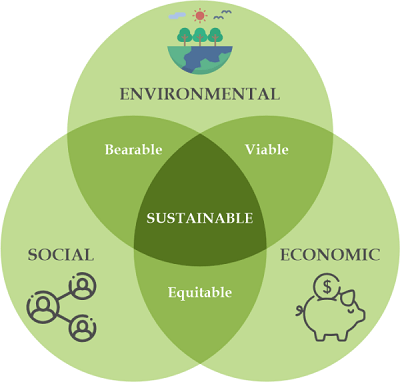Assessing Sustainable Development Definitions Using Water Management as an Example
Introduction
The principle aim is to ensure and fulfil the present-day demand and fulfil the generation’s destiny to manipulate their wishes. This essay will examine one-of-a-kind interpretations of sustainable development and offer a water management instance to show how it can be used in real-global situations.
What is Sustainable Development
The definition of sustainable improvement provided by means of the Brundtland Commission in its seminal file is “development that meets the wishes of the existing without compromising the ability of destiny generations to satisfy their very own desires.” This definition highlights the significance of tackling trendy troubles while preserving assets and opportunities for future generations. Sustainable development inside the context of water control refers to the prudent use and renovation of water assets, ensuring their availability for gift and future necessities. Understanding social, economic, and environmental interdependence is the first step closer to sustainable water control.
Water Management Example
Water is a valuable aid crucial to agriculture, enterprise, human lifestyles, and the maintenance of ecosystem fitness. Integrated watershed management is a high instance of the way sustainable development standards are applied to water control. The sustainable management of land, water, and associated resources inside a selected geographic area, including a river basin or watershed, is called integrated watershed control. It guarantees the long-term availability and great of water resources while taking cutting-edge needs under consideration.
With this approach, numerous stakeholders—which include nearby governments, environmental corporations, and authorities organizations—work together to deal with problems concerning water. They put into practice methods that lessen soil erosion, shield the purity of the water, and guarantee enough water delivery for industrial, agricultural, and residential use. The purpose of included watershed management is to preserve water assets while utilizing water for an expansion of uses.
Discussion
The efficient management of water resources is essential to human existence and the health of ecosystems, and it is a fundamental component of sustainable development principles. These ideas apply to many different industries, including planning, transportation, environmental management, and agriculture, and are not just limited to water management.
Building well-planned, resource-efficient, and socially inclusive communities is the planning profession’s definition of sustainable development. In terms of transportation, this means enhancing accessibility, cutting emissions, and encouraging public transportation. Pollution reduction and the preservation of natural ecosystems are two aspects of environmental management. Sustainable development in agriculture aims to maintain water quality and soil health while improving food security.
Sustainable development is essential to solve urgent global concerns like pollution, climate change, and water scarcity. It demands a change to long-term planning and all-encompassing approaches considering the welfare of present and future generations.
Conclusion
In short, sustainable development is an essential idea that centres on striking a balance between economic, social, and environmental aspects to meet present needs while protecting the resources for future generations to meet their needs. This idea is implemented in water management through integrated watershed management, which guarantees the prudent use and preservation of water resources. Water is a limited and vital resource; managing water sustainably is critical to the health of ecosystems, human populations, and the earth itself. We may work towards a better world that prioritizes fair access to resources, economic development, and environmental stewardship for the present and future generations by implementing sustainability concepts into water management and other areas.




